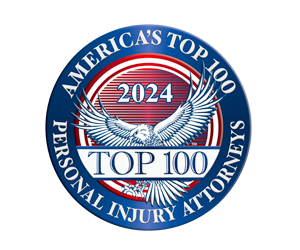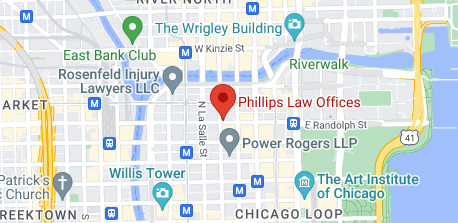After a car accident, several possibilities and outcomes may arise depending on the circumstances. Injuries may range from minor cuts and scrapes to severe injuries like broken bones or internal bleeding. It could also cause property loss, insurance claims, legal actions, and emotional distress. The extent of damage will determine the required medical treatment and recovery time. In some cases, detecting the severity of the injuries is challenging due to delayed symptoms. For instance, shock is an injury wherein a person loses blood flow to their organs. One needs emergency medical aid because this reduced blood flow deprives their organs of vital oxygen.
Let’s look at different types of shock after a car accident and see how a lawyer can help in these conditions.
Car accident shock trauma
The human body can get into shock after a physically traumatic event like a car accident. Shock refers to the physiological and psychological responses that can occur because of the trauma experienced during the event. It is a critical condition that affects overall health and requires immediate medical attention. The symptoms and severity of shock can vary from person to person. It depends on the individual and the specific circumstances of the car crash. Medical professionals believe it manifests in different types according to the underlying causes. Here is a discussion of the main classifications of shock.
Hypovolemic shock
It is a life-threatening medical condition characterized by a decreased blood volume due to intense bleeding and fluid loss. Inadequate blood circulation leads to insufficient oxygen and nutrient delivery to the tissues and organs. As a result, the body’s compensatory mechanisms kick in to maintain blood pressure and organ perfusion. These mechanisms include heart rate increase to maintain cardiac output and vasoconstriction (narrowing of blood vessels) to reroute blood flow to vital organs. However, if the blood loss is significant and persistent, these compensatory mechanisms become overwhelmed and cause permanent damage.
Depending on the extent of blood loss, the signs and symptoms of hypovolemic shock can vary. Generally, symptoms include rapid heart rate (tachycardia), low blood pressure (hypotension), breathing difficulty, dizziness, and fatigue. Treatment could involve ceasing the bleeding source or addressing the underlying cause of fluid loss. Intravenous fluids and blood transfusions may work to restore blood volume and enhance circulation. In severe cases, surgery becomes necessary to control bleeding or fix damaged blood vessels and organs.
Cardiogenic Shock
Cardiogenic shock can happen due to the traumatic impact of a car accident. It causes damage to the heart muscle and leads to impaired cardiac function. In such conditions, the blood pressure often decreases, and the heart can not pump blood effectively. The decrease in the potential of the heart to pump sufficient blood to meet bodily needs causes typical complications. It can result from severe cardiac injuries or pre-existing heart ailment exacerbated by the car accident. If the heart becomes excessively damaged, it can fail to pump enough oxygen-rich blood to vital organs. It can lead to emergency medical conditions or casualties if left untreated.
Having a heart attack or being electrocuted are common causes of cardiogenic shock. Symptoms may include cold and clammy skin, rapid breathing, weak pulse, chest pain, confusion, and shortness of breath. Immediate medical intervention is necessary for treating this type of shock. Intravenous fluids, blood pressure-stabilizing drugs, and procedures like angioplasty or bypass surgery to improve blood flow to the heart are all possible treatment options. However, the severity of the injury and the promptness of medical treatment affect the prognosis.
Neurogenic Shock
This potentially devastating condition can occur after a severe car accident. During neurogenic shock, the victim suffers significant trauma to the spinal cord or damage to the nervous system. Disruption in nervous system function leads to widespread dilation of blood vessels, irregular blood circulation, and decreased blood pressure. Though less common than other forms of shock, it has similar adverse effects on the body. Symptoms include low blood pressure, slow heart rhythm (bradyarrhythmia), rapid pulse rate, sweating, and altered mental status.
Without treatment, the neurogenic shock could have fatal consequences. Hence, prompt medical intervention is crucial to stabilize the person suffering from this shock type. To diagnose shock, your healthcare provider will examine physical health, check vital signs, and go for computed tomography (CT) and magnetic resonance imaging (MRI). According to your medical reports, the provider will administer fluids and medications to increase blood pressure. Next, the professional will treat your slow heart rhythm and help restore adequate organ perfusion. In addition to neurogenic shock treatment, doctors will treat spinal cord injuries and nerve damage from your accident.
Anaphylactic shock
This shock form is a severe, potentially life-threatening allergic reaction that can occur after a car accident. While it does not directly happen by accident, it arises as a secondary problem due to various factors. For instance, if an accident victim has an undiagnosed allergy and gets exposed to an allergen during or after the crash, it can trigger an anaphylactic reaction. In some cases, the event itself may stimulate the release of toxic substances in the body that can contribute to anaphylaxis, an allergic response. People can experience this condition as a reaction to corn starch or other chemicals generally found in airbags.
Regardless of the reason, anaphylactic shock is a potentially-deadly condition that requires immediate medical attention. Symptoms include difficulty breathing, swollen tongue, skin itching, hives, hypotension, fainting, nausea, diarrhea, and vomiting. Based on your symptoms, doctors examine the allergic condition with skin or blood tests. If allergies are severe and progressive, the medical professional will take immediate action, ensuring that blood pressure and heart rate are normal.
Septic shock
After a car accident, septic shock can develop as a complication. When a severe injury, like a punctured organ or a fractured bone, ruptures the skin, it creates an entry point for bacteria to penetrate the bloodstream. If the wound becomes infected, the bacteria can multiply fast and release toxins that trigger an overwhelming immune reaction. This immune response can lead to septic shock, a potentially fatal condition characterized by fever, chills, organ dysfunction, rapid breathing, confusion, and poor tissue perfusion.
Vital bodily functions may gradually shut down in septic shock to combat infection. Prompt medical attention is crucial to managing critical conditions prompted by septic shock. Generally, treatment involves administering fluid resuscitation to regulate blood pressure, intravenous antibiotics to fight the infection, and supportive medical care to prevent organ dysfunction. Regular evaluation and intensive care are essential to improve the chances of survival. If not monitored closely, septic shock can be fatal.
Psychogenic Shock
This shock type is primarily more psychological than physiological. It often occurs after a traumatic auto accident due to emotional distress. In such a condition, the victim experiences an acute stress reaction or intense emotions from witnessing or being involved in a life-threatening situation. Symptoms of psychogenic shock can include emotional numbness, anxiety, sweating, racing heartbeat, rapid breathing, dizziness, and disorientation.
The best recourse to treatment for psychogenic shock is to seek psychiatrists, psychologists, or counselors. Experts can provide immediate emotional support and reassurance following an accident. They may suggest relaxation techniques like meditation, yoga, or deep breathing exercises. The goal is to help the victim cope with the psychological impact of the car crash. Individuals experiencing a psychogenic shock should get over the pain fast and manage their emotional well-being to live a fulfilling life.
-
shock after a car accident
Identifying shock symptoms after a crash
Shock may occur due to various factors, including physical trauma, emotional distress, or blood loss. Whether hypovolemic, cardiogenic, neurogenic, anaphylactic, septic, or psychogenic, shock in any form could have life-threatening consequences. Hence, recognizing the symptoms of shock and seeking immediate medical assistance after a car accident is essential. The following are its fundamental warning signs and symptoms to watch out for:
- Low blood pressure
- Anxiety, agitation, or restlessness
- Dilated pupils
- Cool, pale, or clammy skin
- Nausea or vomiting
- Rapid pulse
- Confusion or disorientation
- Fatigue and body aches
- Difficulty breathing
- Fainting or dizziness
If you suspect someone is experiencing shock after a car accident, call 911 immediately to seek medical assistance. Otherwise, seek local emergency services or an ambulance to ensure the person receives timely medical care. You could be eligible for compensation if things went wrong because the other driver was negligent. Read on to explore your legal options following a car accident and resulting damage.
Vital steps to take following an accident
According to the United States Department of Transportation, road accidents commonly occur and cause substantial injuries. When a collision occurs, you should prioritize your safety and well-being. Check for damages and move to a safe location away from traffic. Turn on hazard lights and call emergency services if signs of shock are prominent. Doctors may diagnose shock during emergency medical care, but the long-term effects may be noticeable weeks later. While not every accident involving shock requires legal representation, there are situations where hiring an attorney is beneficial. Here are the significant steps to take after an accident, with an emphasis on the potential need for an attorney:
Document the scene
Collect crash evidence after evaluating potential injuries and ensuring that everyone is safe. Determining the primary or sole offender will be easy with these details. Obtain testimony from witnesses, record video, and take pictures of all the involved vehicles and any visible injuries. Consider taking distant and close-up shots from various perspectives. Include vehicle license plates, images of apparent damage, nearby streets, debris, and road conditions. Find any nearby security cameras that may have captured footage of the incident. Additionally, you should exchange information related to insurance coverage, driver’s license, and contact with the other accident participants. All this information is vital for insurance claims and legal proceedings.
Informing the concerned authorities
The next step is to report the incident to the authorities, especially the police. No matter how severe the accident is, police reporting is mandatory to prevent legal issues. The police report will help you establish your case and simplify matters. Then let your insurance company know that you were involved in an accident. Most insurance policies specify a deadline by which the injured party must submit a claim to the insurer. Inspectors may ask standard questions as they assess the damage. While giving information about your accident, always exercise caution. Refrain from taking official responsibility for the incident, even though you share some blame. Avoid mentioning what you did before the collision and who you think is negligent. The details you provide may significantly affect your eligibility for a claim.
Consultation with an attorney
Following a car accident, you should seek legal advice to protect your rights and receive the compensation you deserve. Understanding state laws, determining fault, and negotiating with the insurance provider for reimbursement after an accident are challenging. You can investigate your options, establish liability, and reconcile with insurance companies with the assistance of a proficient lawyer. An experienced attorney can help you file a lawsuit to recover damages if the insurance provider resists a fair settlement. A legal advisor is also necessary for accomplishing the formalities and guiding you through each step. A skilled lawyer can efficiently navigate the difficulties of a car accident case in your best interests.
Role of Chicago car accident attorney
If you suffer from shock due to a negligent driver, you may have to bear hefty medical bills and emotional distress. Consider consulting with our Chicago personal injury attorney at Phillips Law Offices for car accidents and compensation. We can provide insightful legal counsel and guide you through the complex legal processes that may arise from the traumatic event. If there is a dispute over who caused the accident, we can investigate the scene, gather evidence, and advocate for your rights. In some cases, insurance companies may deny claims, undervalue damages, or engage in bad faith practices. Regardless, our attorney can help protect your interests and negotiate a fair settlement. So, contact us today at (312) 598-0917 and schedule a private, free legal consultation. We ensure to file the required documents accurately within the statutory deadlines.
Also Read:







